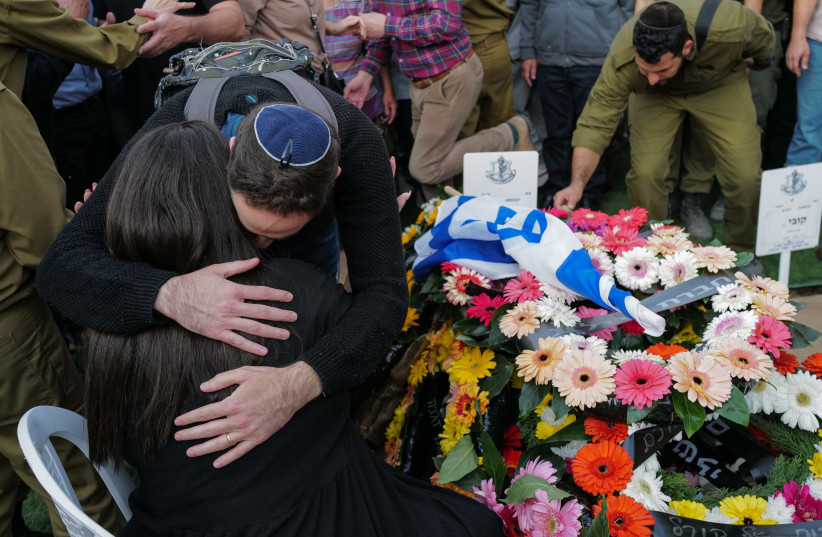Israel is grappling with an enduring trauma – a relentless cycle of rocket attacks, violence, war, and displacement that has left the entire nation immersed in a deep emotional crisis.
The challenge we face is not just about immediate threats but also the looming mental health crisis that demands our utmost attention.
Picture this: an emotional storm that parallels the urgency of the COVID-19 pandemic. The emotional contagion is spreading, and the risk is widespread, with varying degrees of susceptibility across different groups and individuals.
The glaring disparity between the growing mental health needs and the availability of trained therapists in Israel is a critical issue, worsened by the strains of the recent pandemic years.
As we navigate the ongoing war, a monumental wave of psychopathology is expected when it eventually subsides.
We must prepare for the perfect storm of forces that will follow:
• Grief: The mourning process has been delayed, suppressed by the immediate actions taken after the horrors of October 7. Busy with volunteering, fighting a war, attending funerals, and visiting the bereaved, our actions have suppressed a great deal of grief. We could not afford to be bowed and disabled by powerful emotions. The return of powerful emotions in various forms is inevitable.

• Physical illness: Stress and grief can trigger or exacerbate physical illnesses. Heartbreaking cases, like that of Capt. (res.) Sivan Sekeli Ben-Zichri, who suffered cardiac arrest due to the stress of her role as a bereavement officer in the IDF, highlights the profound impact of psychological stress on physical health.
• Anger: Suppressed grief and anger at the government and other institutional failures undermine basic trust, destabilizing the emotional foundation of our society.
• Anxiety: Living under constant threat takes a toll on our nervous system. Frequent alarms and the need to seek shelter trigger chronic physiological responses, constituting ongoing trauma.
• Depression and insomnia: The spouses of reservist soldiers and the general population are already experiencing increased rates of depression and sleep-related issues.
• PTSD: The prevalence of Post Traumatic Stress Disorder in returning soldiers, hostages, and survivors of October 7 is an impending challenge. Multiple factors contribute to the wide range of PTSD rates, such as age (younger people are more susceptible), gender (women are more susceptible), the number and types of trauma previously experienced, and personal history of depression and anxiety. The type of trauma exposure also plays a role. Seeing dead children and burnt bodies is particularly traumatic.
• Secondary trauma: Family members and individuals immersed in traumatic details, like journalists, are vulnerable to secondary trauma. Visual images are particularly toxic.
• Gun proliferation: The acquisition of guns, combined with emotional challenges, increases the risk of domestic conflict and deadly violence. Suicide and homicide are both more likely when guns are available.
To confront this crisis, we need more mental health resources, but training enough professionals will take years. In the interim, paraprofessionals can play a crucial role. Retirees, both paid and volunteer, can be invaluable assets.
With proper training and supervision, paraprofessionals can provide the following options:
• Psychoeducation: offering public education on self-care and recognizing symptoms.
• Support groups: facilitating mutual aid and information exchange.
• Therapy extenders: assisting in maintaining contact with patients and encouraging them to adhere to medication and other treatment recommendations.
We urge public health institutions and mental health leadership to collaborate with civil society and coordinate on this important issue. By recognizing it and creatively using paraprofessionals to help, we can rise to this public health emergency.
The time to act is now.
The writer is a clinical psychologist, writer, and podcast host of The Van Leer Series on Ideas with Renee Garfinkel.
